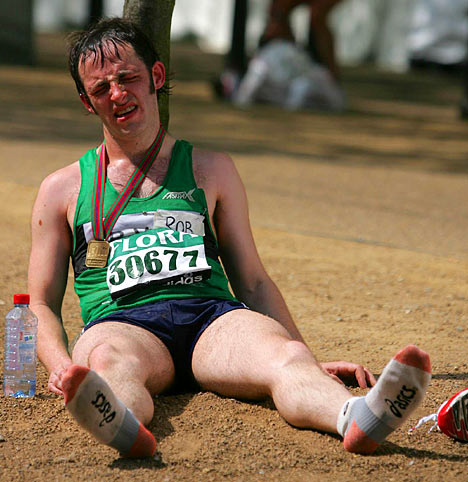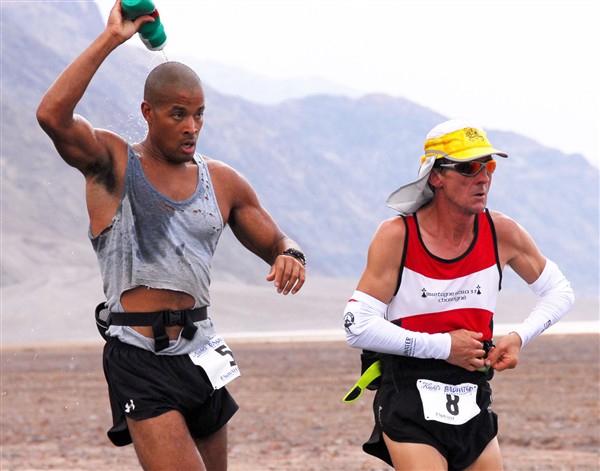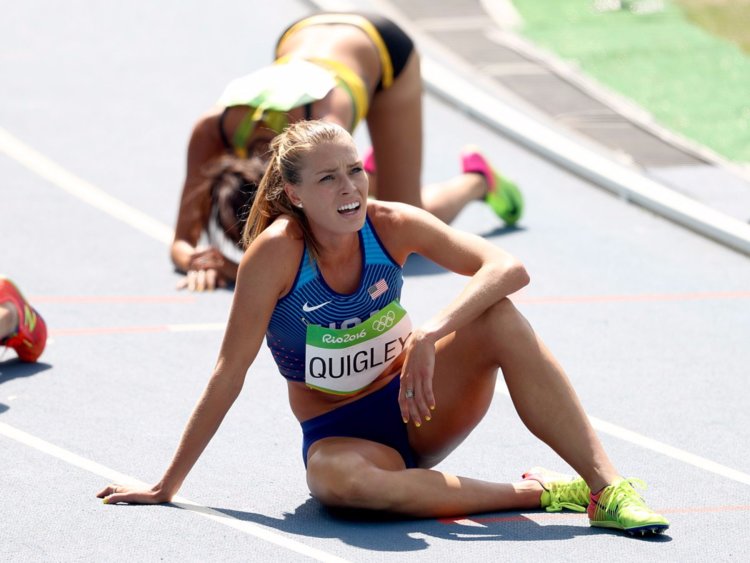Avoiding Heat Exhaustion
Getting out and exercising is always so much easier in the sun, but depending on the temperature and the level of exercise you’re doing, there are hidden dangers. Heavy exercise in hot and humid conditions is going to leave you prone to heat exhaustion and other heat illness, such as heat stroke, heat cramps, and dehydration.

Play sport or exercise in a hot environment when you are not used to it can be very challenging which is why most serious athletes will always acclimatise for a few days, even a week before doing any serious training or competing. Everyone considering heavy exercise should do the same.
The definition of heat exhaustion from the Mayo Clinic is as follows:
“Heat exhaustion is a condition whose symptoms may include heavy sweating and a rapid pulse, a result of your body overheating. It’s one of three heat-related syndromes, with heat cramps being the mildest and heatstroke being the most severe”.
Fortunately, heat exhaustion is preventable and treatable but let’s first look at what kind of conditions put you at risk of Heat Exhaustion.
- Exercising in hot and humid temperatures
- Inadequate fluid intake before or during exercise resulting in dehydration
- Over exertion and exposure to warm temperature
- Not taking breaks to let the body cool down.
We look at the most common sports injuries and some remedies

Preventing Heat Exhaustion
- Acclimatise – Individuals should adapt to exercise in the heat gradually
- Be aware – Athletes should recognise heat exhaustion and exertional heat stroke signs and symptoms to indicate the need to slow, modify, or stop activity before it’s too late
- Hydration – be adequately hydrated before and during exercise can help prevent heat illnesses including heat exhaustion.
- Appropriate work to rest ratios based on environmental conditions is necessary in the prevention of heat illnesses. Increasing rest break durations as ambient temperature increases is warranted.
- Cool down – When breaking from exercise or finishing, get in the shade, go indoors or have a cold shower. Don’t remain under the blazing sun!
The 7 different running surfaces and how they can affect the body
Symptoms of Heat Exhaustion
- A drop in blood pressure when exerting yourself, such as moving from a sitting to a standing position, which can make you feel dizzy or lightheaded
- Dizziness or confusion
- Nausea or diarrhoea
- Feeling faint or having the sense that you are going to black out
- Sweating profusely
- Dark-coloured urine which is a sign of dehydration
- Headache
- Muscle cramping
Sports that are most likely to cause concussion

Treating Heat Exhaustion
- Stop what ever activity you are doing, move to a cooler environment such as an air conditioned room or in front of a fan and rest.
- Loosen or take off any tight or extra clothing
- Drink cool fluids but stick with water or sports drinks
- Lie down and elevate your legs to get blood flowing to your heart
- Apply cool towels to your skin or take a cool bath/shower
The 10 best sports for fitness
PledgeSports is the global leader in crowdfunding & sponsorship for sport.
Are you or someone you know raising money for sport? If so, get in touch with us via info@pledgesports.org, or visit www.pledgesports.org and hit “Create A Campaign” to start raising money today!
For all the latest sports news follow PledgeSports on Facebook, Twitter, and Instagram.
